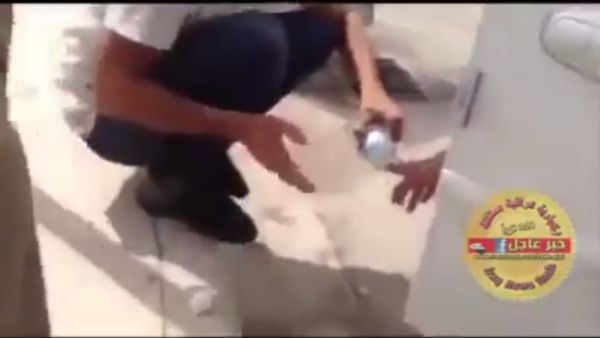- Videos shared on social media allegedly showed vote rigging in Kurdistan's independence referendum
- It is not possible to verify the footage
- The clips were shared by Arab Iraqis who are largely opposed to Kurdish statehood
- Kurdistan's poll was monitored by outside observers
Accusations of electoral fraud have been directed at voters in Iraqi Kurdistan’s controversial independence referendum.
Videos claiming to show incidents of vote manipulation in Monday’s poll have gone viral on social media in Iraq.
One clip in particular allegedly showed Kurds washing their ink-covered fingers after voting, in order to cast a second ballot.
Watch: fraud in the referendum in Kirkuk province
In Iraqi Kurdistan, as in other countries where identification documents for citizens are not fully institutionalized, a semi-permanent dye is applied to the fingers of those who have voted.
Images of beaming voters holding up their inked fingers to the camera were spread across media coverage of the contested vote.

(Qubad Talabani, Deputy Prime Minister in the Kurdistan Regional Government, shows his ink-stained finger after casting his vote in the Kurdish independence referendum (Shwan Mohammed/AFP))
It is impossible to verify the video, which does not have any sound. In any case, the clip shows only individuals washing their hands, but not returning to vote fraudulently.
Separate footage, for which no source was given, seemed to show an individual filling in a pile of ballot papers.
Again, it is not possible to establish the accuracy of the clip, which was widely shared on social media.
The videos emerged after earlier on Monday accusations had been raised against Kurdish authorities for reportedly pressuring members of the Yazidi minority into voting for independence.
- Are Yazidis Being Coerced to Vote 'Yes' in Kurdistan's Referendum?
- Why Are Kurds Waving Israeli Flags at Pro-independence Rallies?
Despite these complaints, the Kurdish referendum was monitored by European observers, although not by the U.N., which had warned against its “potentially destabilizing effects”.
#British MPs observing and witnessing #KurdistanReferendum in #Kirkuk polling station where Great lady Hero Ibrahim Ahmed voted pic.twitter.com/kF3GL9nwC5
— karwan jamal tahir (@karwanTahir) September 25, 2017
Kurdish site Rudaw reported that observers had deemed it a “free and open referendum, so far”.
Nonetheless, the popularity of such charges against the referendum among Iraq’s Arab majority is characteristic of their anger towards Kurdish independence plans.
Rogue referendum. This is what they call referendum of cheating, falsification, ridicule, which is unconstitutional, illegal and represents only the benefits of dictatorship and the arrogance of one party, the client of Zionism, which is not recognized locally or internationally. They are only deceiving themselves.
#BREAKING - 4 ballot papers put in by 1 person in #Kurdish referendum, selfie taken. A large absence of international observers in votes pic.twitter.com/Lf7tUz7xhh
— SURA (@AlSuraEnglish) September 25, 2017
Tensions between Arabs and Kurds over the poll are particularly fraught in disputed Kirkuk, where Kurdish, Arab and Turkmen populations live side-by-side.
While the Kurdish population turned out in force to vote “yes”, the Times of Israel reports, Arab and Turkmen residents were largely opposed to the poll and most chose not to vote.
Iraqi media reported on Monday that parliament had moved to put Kirkuk’s oil fields under the control of the central administration, ahead of the referendum results.
Baghdad has repeatedly expressed its opposition to the vote and to Kurdish ambitions of statehood.
On Tuesday, Prime Minister Haider al-Abadi said he would not hold talks with the Kurdistan Regional Government about the outcome of the “unconstitutional” referendum.
Al-Abadi had previously indicated that Baghdad would “intervene militarily” should the vote turn violent.
Full results should be announced within 72-hours, although it is widely expected to be a resounding "yes" vote.







